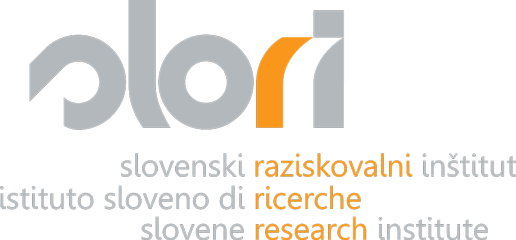Research action
Project promoter: SLORI- Slovene Research Institute
Project performer: SLORI- Slovene Research Institute
Project implementation period: 2006
Within its research activity the Slori institute also deals with the activity of the Slovene minority associations in Italy, especially focussing on intergenerational relationships inside the associations and their influence on the number of associates, the type of activity, the implementation, and the general work of the association.
In 2005 Slori has published an analysis of the results of a survey, carried out on the occasion of the Programming Conference. After the publication of the book entitled Mladi, gospodarstvo, kultura: analiza stanja za razvoj slovenske manjšine v Italiji (Youth, economy and culture: analysis of the situation for the development of the Slovene minority in Italy), the institute has organised two workshops on the theme of intergenerational relationships within the associations, and the relationship between tradition and innovation in culture. The summary of the two workshops emphasizes the lack of an effective communication and of adequate working methods within the associations, and therefore the need for a further development on both themes.
Considered the great interest for the initiative, the will to cooperate and the actual needs, we decided to launch the project Društvena dejavnost: medgeneracijsko soočanje kot razvojna možnost (Associationism: intergenerational confrontation as a development opportunity), financed by the Department for Recreation and Sports and for Youth Policies of the Autonomous Region of Friuli Venezia Giulia. The project also claims the cooperation of ZSKD (Union of Slovene Cultural Associations), ZSŠDI (Union of Slovene Sports Associations in Italy) and Slovenska prosveta.
The aim of the project was to develop and introduce best practices in the associations, in order to transform intergenerational conflicts into “added value”, and prevent critical situations, where conflicts limit or hamper the active participation of young people.
The project was divided into two independent parts:
1) Course for a good cooperation between the generations within the associations
The course consisted of four meetings.
Target: the target group of the course were subjects of different ages, who would like to improve their knowledge of the characteristics and features of intergenerational communication.
Objective: provide the necessary tools for an improved communication between different age groups, especially in the field of associative activities.
The course was made up by a series of meetings, carried out with the individual social learning method in small groups, which was based on participants’ concrete experiences (12-14).
At the end of the course another series of supervision meetings were organised, where the participants had the opportunity to deepen the acquired knowledge and share the experiences gained after the conclusion of the course.
The course was held by prof. Dr. Jože Ramovš of the Institute Anton Trstenjak in Ljubljana (www.inst-antonatrstenjaka.si), social worker, doctor in anthropology and psychotherapist.
In conjunction with the meetings, Slori continued its research work as well. The researchers of the Institute had monitored the entire process by performing interviews, that helped to survey participants’ opinions and attitudes towards the intergenerational communication and the knowledge acquired. The interviews took place before and after each meeting, and at the end of the supervision meetings, subject to agreement with the participants.
2) Meetings for a deeper comprehension of the relationships between generations in the management of the associations
Target: the meetings focused on single associations in the area of Trieste, Gorizia and Udine, which wanted to analyse the intergenerational relationships within their associations and to tackle these themes with the help of an expert.
Objective: offer a consulting service and a professional approach to the operators in the field of the associative activities (managers, associates) for a better management of the intergenerational relationships within single associations.
The themes of the meetings had been chosen according to participants’ proposals.
The meetings were led by dr. Suzana Pertot, psychologist-psychotherapist, Slori researcher.
